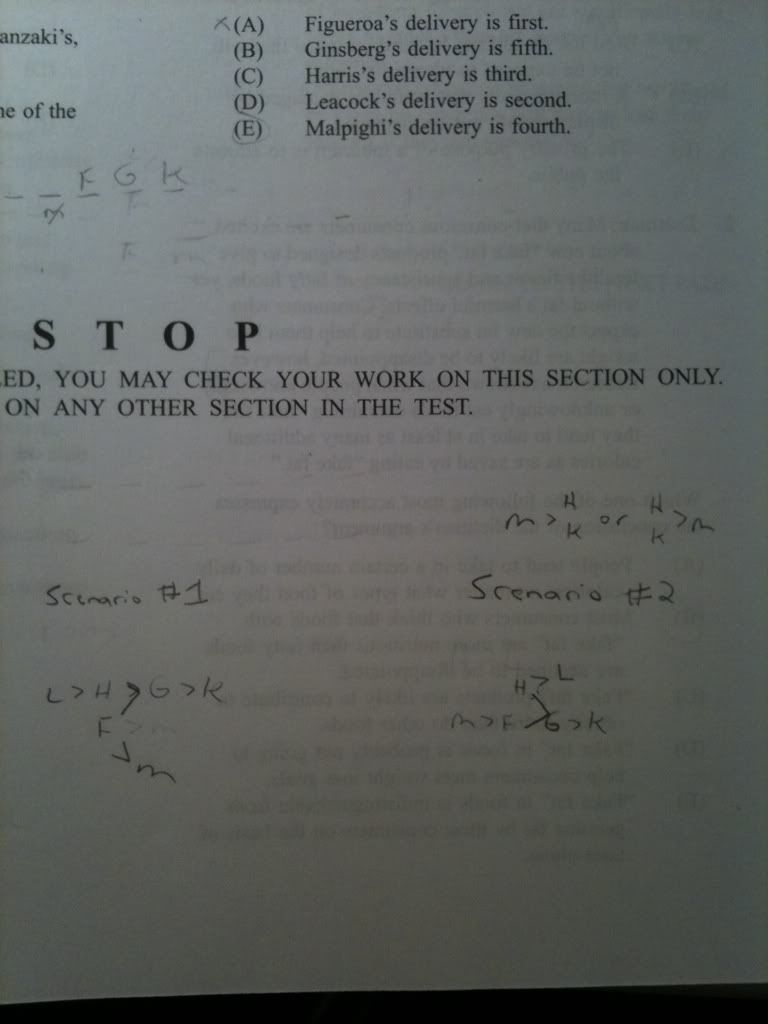Page 1 of 1
Difficulty in scenario set up in Preptest 52, 4th logic game
Posted: Wed Apr 13, 2011 9:30 pm
by secretad
There are two scenarios that can play out due to the conditional rules.
A world with F>M ---> L>H
And a world with H>L ---> M>F
The last constraint gave us either M> H & K
or H & K > M because M cannot go between the two variables.
So, I then decided to make my two hypothetical scenarios and I notice that the second scenario seems to be incorrect because the answer to #20 is not B, which I selected without giving it a second thought because of the inference work I did.
Tell me how is the second scenario invalid, or how 20 is not B.

Re: Difficulty in scenario set up in Preptest 52, 4th logic game
Posted: Thu Apr 14, 2011 12:06 am
by 510Chicken
Your diagram is wrong. I'm fairly certain that there are more than two setups to an unconstrained scenario. In particular, you diagrammed a false contrapositive of rule 3. (F > M --> L > H) does not mean (M > F --> H > L) as you have in scenario 2. You're missing (M > F , L > H). Also, rule 3 does not react in overly restrictive ways with rule 4, which means that there are a bunch of permutations that you don't have. Not that you need them.
The correct interactions for 20 are included below.
--ImageRemoved-- (LinkRemoved)
K must be last. Everything else comes before it except for L, but L is given to be 3rd. As you can see, H does not need to precede L. M must precede H. So (E).
Re: Difficulty in scenario set up in Preptest 52, 4th logic game
Posted: Fri Apr 15, 2011 11:22 am
by secretad
Yeah my bad on that. I don't know why I made that faulty "inference"
We know what happens when F>M, but we do not know anything about M>F.
I reworked the game and it went much better.
I would like to ask a general question on conditional sequencing games because these games, while workable, take so much of my time. They are not necessarily difficult, just time consuming.
I feel as if sometimes I am missing a big deduction. What can one do with conditionals with some straight sequencing rules such as this game?
I assume the only time I can infer something is if I am given two conditionals such as M>F -> something
and F>M -> something. That would give me all of the logical world to work with and could then tie in the straight sequencing rules if they given.
Am I correct in this thinking? And is there any other time when one could infer something, like would an if and only if be unique at all in making deductions?

